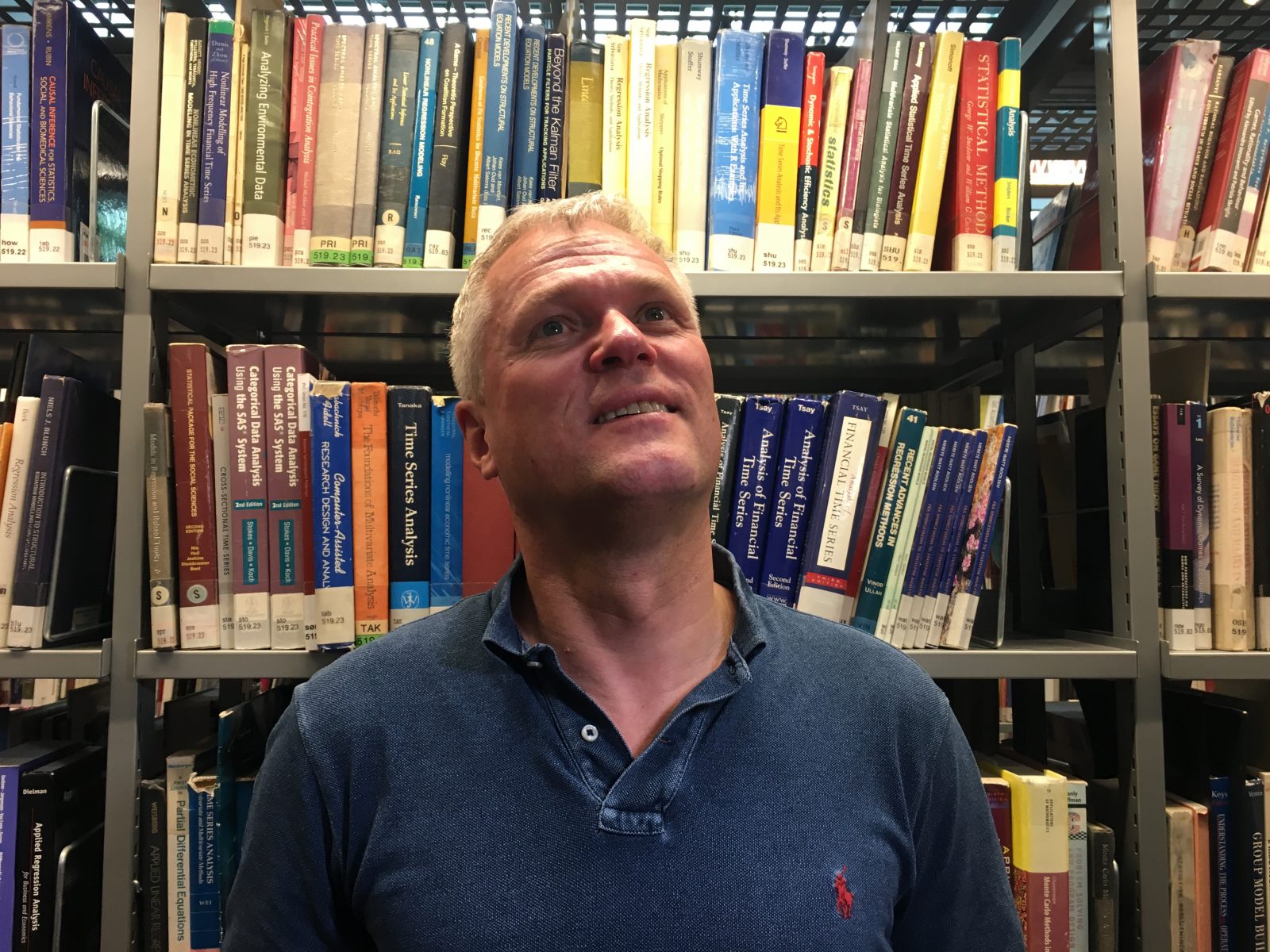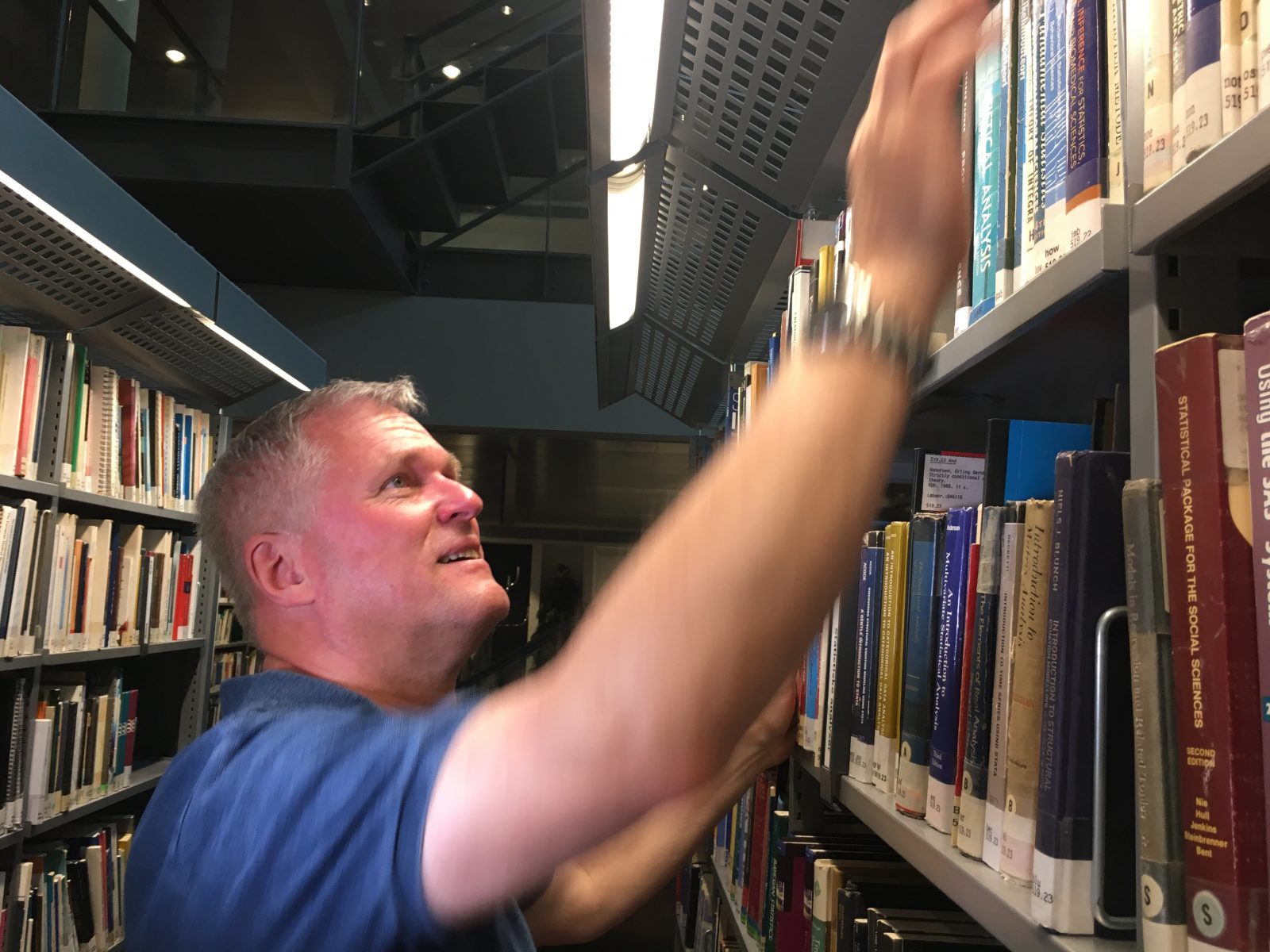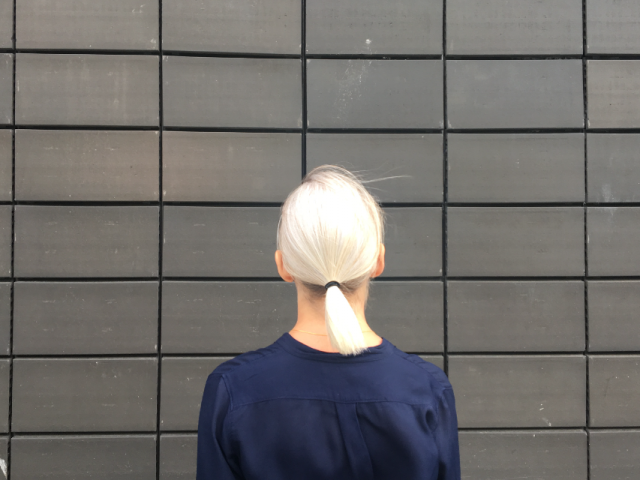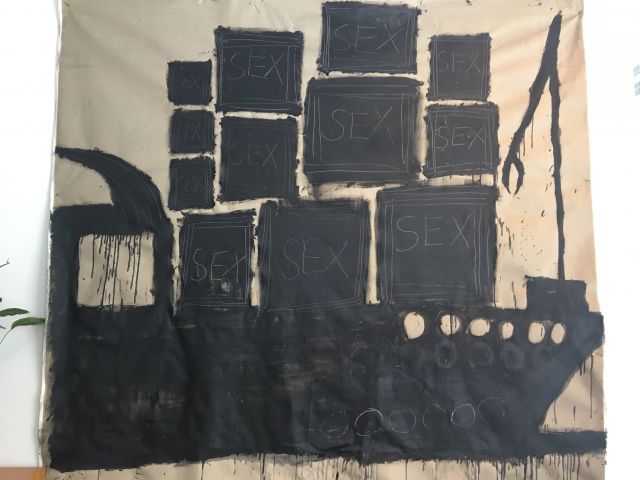Hidden refugees and one forbidden book

The library at Solbjerg Plads is maybe becoming open 24/7. (Photo: Anne M. Lykkegaard & Mette Koors)
Rumor has it that the second director of the library at CBS once hid away refugees there during World War II. During the past 95 years, the library has expanded rapidly making room for everyone – except Karl Marx.
World War II. Under the roof of the CBS library, refugees are hiding. Waiting for a chance to flee out of the country and get away from the Nazis.
It is Per Boesen, later the director of the library, who has lent out a helping hand to the ones in need and offered a hideout in the library at Julius Thomsens Plads in Frederiksberg.
Or so the rumor goes.
“We don’t know if it’s correct, but the rumor has stuck till this day, and I want to start and investigation on this matter to see, if there’s any truth to it,” says Gert Poulsen, Deputy Librarian and Head of Faculty & Study Service at the at Copenhagen Business School Library.
He tells CBS WIRE that Per Boesen’s wife was the secretary of Frode Jakobsen, leader of a resistance movement in Denmark during World War II, and that the family Boesen was heavily involved in the resistance movement in general. This indeed gives the impression that the rumor could be true.
And this isn’t the only secret the great library, now situated at Solbjerg Plads, holds.
Dusty books
CBS was established in 1917, but it wasn’t until 1922 that the school got its own library. So while the school celebrates its 100 years’ anniversary this year, the library will have to wait until 2022. But just like the school the library has experienced a thing or two throughout its 95 years.
CBS represents much of what Karl Marx criticized
Gert Poulsen, Deputy Librarian
At the same time Per Boesen, assumingly, was hiding away refugees in the library the great concert and event hall Forum was blown up on August 24th 1943 by the Danish resistance movement.
The library was at that time situated right next to Forum, and the explosion blew in the windows leaving a mess and a fine layer dust everywhere.
“Even though the staff cleaned the library and its books with excessive care, you would still find dust from the explosion more than 30 years later,” says Gert Poulsen.
He says that he is very curious about the history of the library and plans to go into depth and learn more about the former directors of the library and their stories.
“I would like to go far back in history and tell the stories about the people running the library. The library has a great part in making CBS more academic through the years, and it’s a part of our identity,” he says.
Exit Das Kapital
With its 95 years, it is easy to gather a vast number of books. Each year the library expands its collection and buys new books for the amount of DKK 1.000.000. But does the library have any books of great value?
“We were once given the first edition of Karl Marx’ ‘Das Kapital’. It’s worth quite a bit today – not millions but at least around DKK 50,000 – 100,000,” he says.
The library wanted to have it on display with some other books, but it never came to that. The library had to give up the book and lend it out to The Labour Movement’s Library and Archives, since CBS couldn’t afford the anti-theft protection of the valuable book, explains Anders Ravn Sørensen, Assistant Professor at the Department of Management, Politics and Philosophy at CBS.

Gert Poulsen adds:
“One can think that it was a bit funny that a place like CBS was given ‘Das Kapital’ to begin with. CBS represents much of what Karl Marx criticized,” he says and adds that books by Karl Marx can be found at the library – more than 150, actually.
A revolution in the library
Today the library has access to more than just books in their physic form, and we can find everything we need in online editions within the blink of an eye. And we tend to take that for granted.
Back in the 1960s, the internet still didn’t exist, but CBS was among one of the first in getting all their books’ information on computers through electronic data processing (EDP).
This made it possible to search for specific book titles in the library.
About 20 years later, the library got an online card index, which according to Gert Poulsen was quite a revolution and adds that: “In those days CBS Library was definitely a first mover and pioneer in implementing the new technologies. But it wasn’t quite handy until everything came online.”
Furious students
Today the great library at Solbjerg Plads seems to be the heart of CBS. Always pulsating with busy students filling their minds with everything from crowd-theory to business strategies through the ages, marking that things are definitely being learned at CBS.
And it is not only students from CBS, who come here.
Back, when the building at Solbjerg Plads was established, a lot of students came from other universities, such as Roskilde University and University of Copenhagen, to make use of the new facilities, since they at that time were lacking proper places to study for themselves.
This caused quite a drama. CBS students had trouble finding empty seats and a reservation schedule was introduced to decrease the number of seats available for students outside CBS.

“Non-CBS students got furious. They even took this matter all the way to the Danish National Library Authority, claiming that it was a breach of the law of libraries, but we do have seats available for people outside, so it didn’t get that serious,” explains Gert Poulsen.
Safety first
When asked if the books or the library itself ever have been exposed to a catastrophe like a fire or flood, the answer is no. But a chocking event did take place right before Christmas last year.
A masked guy came into the library and threw a backpack while shouting ‘Allahu akbar’ leaving the staff and students in shock.
“We live in an open society, but of course we have to be aware of our surroundings. It’s a part of everyday life now. But we don’t want to safety screen everyone going in and out of the library and put up guards,” says Gert Poulsen.

Actually, the library plans to become more open. Right now, the senior management and library staff is discussing the possibility of making the library at Solbjerg Plads open 24/7, just like Porcelænshaven and Graduate House. But the question about safety is a tough one.
“If we make the library open 24/7 we can’t have staff running around all time, so we need to figure out what to do in the hours with no staff. Will the library end up attracting people who don’t have anything to do here? And should people be screened before entering?” asks Gert Poulsen.
Even though he can’t put a specific date on when the library will become open 24/7, he assures that sometime next year the library will expand its opening hours and welcome even more students to the popular library.

































































































































Comments